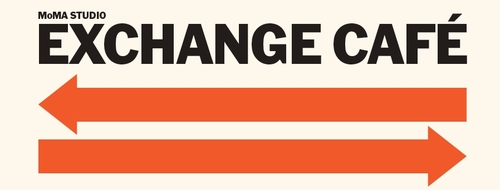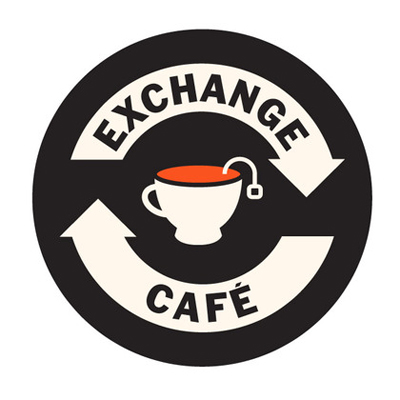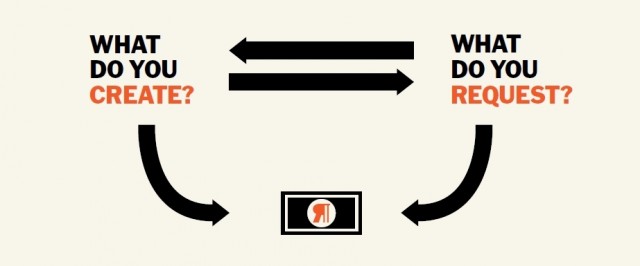A new and exciting project is being held at the Museum of Modern Art this month: the “Exchange Café.” The exhibit, which is open every Thursday, Saturday, and Sunday from 1:00-5:00 p.m. and Fridays from 1:00-8:00 p.m. in the mezzanine of MoMA’s Education and Research building, is also host to a weekly organized talk with artists involved in the project (for which details can be found here). Organized by local artist and activist Caroline Woolard, the project integrates several organizations whose missions revolve around the idea of “exchange”.
At an initial glance, the basis for the café is fairly simple. A visitor can acquire tea with milk and honey in exchange for a “resource-based currency.” However, the currency is in fact an abstract outreach towards visitors to redefine their conceptions of value and “goods.” Under the form of a slip of paper with the following words “I, ____, create _______________ and request _____________.” With this agreement, visitors are asked to determine not only what the world can offer them, but what they can offer to others. In return, they are then given a product created from the notion of “exchange”: tea brought from travelers of Eastern Asia, honey offered from “Bee Space” (an organization which manages bee hives in Battery Park and then donates the resulting honey for free), and milk from upstate dairy farmers courtesy of “Milk Not Jails” (a group of activists hoping to create alternative solutions to the prison industry in New York).
Along with tea, visitors receive slips of currency that others created, which hopefully remind them of the needs of others while at the same time inspiring a sense of camaraderie. Each slip represents the potential for growth and personal development as visitors are reminded that their needs can be fulfilled through the power of reciprocity. Through this, the Exchange Café isolates the collaborative portion of art in order to educate the public not only on alternative economies but how simple exchanges can produce significant exchanges. Thus the Exchange Café makes a simple trip for tea, milk, and honey, an opportunity to touch upon a universal sense of fellowship that is often lost.
Images: moma.org


